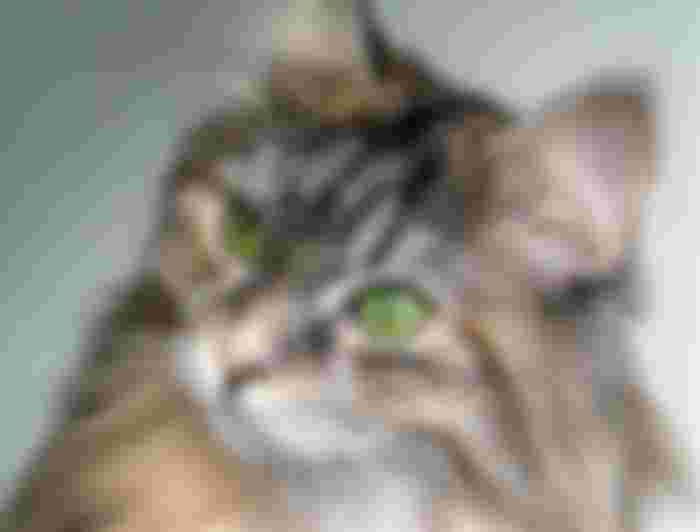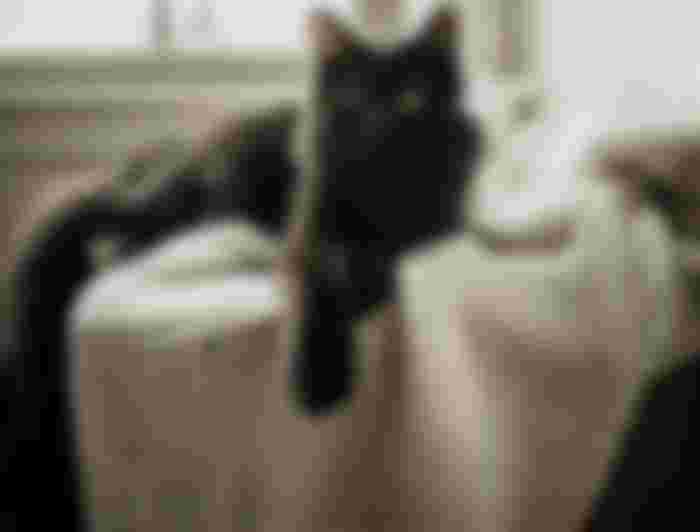Which profession is the most ancient profession? It is hotly debated. Many use "the world's oldest profession" as a euphemism for prostitution, but we'll probably never know what was the world's truly oldest profession. However, I can confidently tell you what's the world's second oldest profession: bootlegging.
When Mr. Caveman invented the wheel, his neighbor saw it, and created a knockoff for half the price. As long as mankind has existed, man has been making poor man's versions of everything. Join me, on my tale as we explore the rise and fall of the Hungarian text-based pet simulators, a story of cutthroat competition and shameless bootlegging.

In the beginning, there was silence and darkness...
... and man said: let there be Internet!
The ".hu" domain name ending was officially added to the Internet on the 7th of November, 1990. As of 1996, there were around 500 domains operating in Hungary, however, the ordinary civilian still had no access to it, or wasn't even aware of its existence. Let's keep it in mind: it was the 1990s, most websites were just static and usually text-only.
In 1997, we saw the appearence of the DPG, which stands for DrótPostaGalamb (Wire Mail Pigeon), offering its users a mixture of e-mail services, mailing lists and online newspaper. One of its biggest innovations was that it did not even require an Internet service subscription at all, requiring only an ordinary phone line.
I guess my family was kind of a latecomer to the Internet - we got our first Internet connection back in 2003 or 2004, and it was operating on a phone line - the good old 56k dialup. And most of the time, we only connected to the Internet for like 1-2 hours at a time.
Just like the Internet in the rest of the world, the Internet that the average Hungarian civilian was using was a mixture of static websites, message boards and e-mail providing websites, and part of the latter niche was occupied by DPG, which was more or less its own thing accessed by its own program. It was the Dark Ages for us Hungarians.

Arguably, the biggest gamechanger was G-Portál, launching in 2002, which allowed just about anyone with an Internet connection to create their own website with a guestbook, a forum, a mailing list, a gallery, etc. albeit with some constraints. The level of customization was more akin to having a Tumblr blog than truly making your own website from scratch, but that was more or less the point to begin with: people with zero or minimal knowledge of HTML programming could create fansites for their favourite bands, or something of that kind. It cannot be overstated how much of a gamechanger G-Portál was, as we'll see later on.
The Good
Pet simulator games aren't unique to Hungary. Hell, even web-based pet-simulators probably aren't unique to Hungary. I highly doubt that the idea of a website, where you own a virtual pet and have to "feed" it on a near-daily basis, can make it learn tricks, etc. is a uniquely Hungarian idea.

For my case study, I am going to bring up 5 examples that I was familiar with during my childhood:
TeveClub (Camel Club), first launching in 1997, is arguably the most straightforward example of a web-based online virtual pet simulator: should you choose to, you can adopt a camel, order it to learn tricks (such as eating, sleeping, laying, standing, cooking, etc.), oversee the camel's emotion (the camel gets sad if you don't come visit every day) and weight (gotta feed the camel). If you don't feed your camel often enough, it can die! You could also buy dates for your camel (using real-money), which would temporarily give it superpowers.
Launching in 1999, Slaveland is a virtual pet simulator in the more abstract sense, as rather than raising a virtual pet like a camel, you are overseeing the life an alien, overseeing the alien studying, working, buying groceries, weaponry, etc.
Launching in 2002, the Larkinor Quest (also available in English) is a straight-up online RPG of sorts, but I still feel like it fits the list, because even though daily/weekly participation wasn't mandated, many of the imitators I am going to mention will still end up copying aspects of it. Larkinor is a game, where you control a single person on his/her quest to buy his/her right to leave the island of Larkinor, using every available tool at the disposal: fighting monsters, digging for treasure, completing quests by visiting dungeons, joining guilds, robbing other players, stealing, etc.
Launching in 1997, Hősemberképző ("Hero-Man Academy") takes the formula of TeveClub, but instead transplants it to raising a "hero" in the Paleolithic, more or less. You are expected to visit your hero often, otherwise the supposedly "immortal" hero dies.
Launching in 2002, sadly closing down in 2012, Thrillion Kincsei (The Treasures of Thrillion) was a mixture of web-based RPG, strategy game and play-by-post RPG. Basically, you had a character who could amass wealth and level himself/herself up battling other characters, controlling armies to do raids, etc. and after reaching level 3, one was given access to the "open playground", which was the forums where the play-by-post roleplaying was taking place. Just like Larkinor, Thrillion might feel a bit out of place from the list, but I am mentioning it, because it too had a heavy influence on the imitators I am going to talk about later.
All of these websites had their golden years in the early-mid 2000s, already in decline by 2010. Thrillion was closed down in 2012, while all the others either became ghost towns, or might still be visited by a few cult followers.
The technology behind these websites was mostly a mixture of PHP, some database management, and a bit of Flash on TeveClub. Usage of JavaScript was either limited or near-nonexistent, with the bulk of the crunch being server-side, and much of the content being served in a format akin to static HTML pages augmented by buttons.
The Bad (and Ugly)
Remember my initial parable about Mr. Caveman and his bootlegging neighbour? Well.... With their rising popularity, these five websites attracted imitators.... but arguably, hilarious ones at that.

Armed with nothing but Microsoft Paint (or a pirated version of Photoshop or Paint Shop Pro), Microsoft Office, an Internet connection and zero programming knowledge (except maybe some HTML), a bunch of Hungarians aged 8 to 18 began producing knockoffs en masse. Everyone wanted to create the next (poor man's version of) TeveClub, Larkinor, Slaveland, Thrillion, etc. Except for one major problem....
Without programming knowledge, you weren't going to create even a poor man's version of those games. You were going to create an extremely poor man's version of those games. How poor are we talking about? Basically, "too poor to own actual video games and thus forced to create homebrew board games to imitate part of the experience"-level poor.
Raise your own cat! Raise your own anime character! Raise a fantasy hero with a custom image!

The "technology" behind these poor man's versions - if you can even call it that - was extremely crude. It was basically the Tiger Handheld Games of web-based RPGs.... or no, it was like board-games compared to video games.
Basically, these imitators established themselves largely on G-Portál. When you created a character, you basically input all the character's information into some designated guestbook of sorts, and if you got approved, the site's administrator would manually create an HTML page for your character stored on the website. Afterwards, it would get manually updated, every single time.
Character interactions took place through guestbooks, forums, e-mails, or even MSN Messenger or Skype. I guess you could say that one advantage of this crude system was that it was far more personal, one felt like belonging to a community, and new features could easily get implemented.
The fact that administrators had to manually manage the stats of every single character/pet, manually approve of every interaction between each player and the rest of the world, etc. put a hard cap on the amount of players such an imitator could ever hope to achieve. The best you could hope for was maybe 15-20, but a lot of imitators barely got to a quint.
Oh, and most of these "games" were made by kids for kids... Which means that the biggest threat to a game was basically its administrator getting grounded by his/her parents.
The themes of these "games" were diverse though, I gotta give them that. You could raise a virtual dog, cat, horse, dragon, anime character, warrior, fantasy hero, anything! I remember I had at least three such "pet simulator" sites on G-Portál: one where the player controls a musician (yes, a musician), one where the player controls a feudal lord (adopting some elements of strategy games too), and one where the player controls a fantasy character.
These "games" - if you can even call them that - had their golden age roughly between 2003 and 2008. As of 2021, I can't imagine anyone considering it a genuinely idea to create another text-based Tamagotchi-imitator on G-Portál.
The Other Sides
While many were attempting to imitate the pet simulator-ish parts of the aforementioned websites, some looking more at the roleplaying side of things. Hell, many of the aforementioned G-Portál-based "pet simulators" functioned more like RPGs, where your character sheet may have been manually added by the administrator, much of the activity was play-by-post roleplaying.
Before I fully migrated to message board-based roleplaying in 2008, even my own pet simulators were more like hybrids that still featured a forum for play-by-post roleplaying. Which is to say, that the migration was gradual.
The oldest Hungarian-language forum-based RPG is Martion, which opened up in 2000, albeit predecessors did exist on DPG. The Golden Age of the Hungarian FRPG was some time between 2004 and 2014, with their popularity dropping heavily afterwards, though several still exist - e.g. the aforementioned Martion is still active, and so are sites like Lanawin, Roxfort and Fantasia Empire. While I have no doubt that these sites still have some following, I think they are all past their prime, even if they are still kicking.

This article isn't about the FRPGs, so I won't really elaborate more on them.
Just like that, I won't spend too many words elaborting on the rise and fall of the Hungarian RPG Maker community either, only mention, that there was quite a bit of overlap between that community, and the Hungarian "pet simulator" and FRPG communities.
The Fall
G-Portál achieved its peak some time between 2008 and 2010, which is the point where it reached its maturity. After that came the appearance of social media like Facebook and Tumblr, which was quite the hit to the popularity of G-Portál. Even before then, G-Portál still had to compete with blogging services like WordPress, or even free forum-providing services like ProBoards and Forumotion.
While G-Portál is still kicking and running, I don't remember ever willingly taking foot on G-Portál since 2010, except today, to do some research for this article. I reckon that most Hungarian zoomers haven't even heard of G-Portál. To us Hungarian millennials, it was like MySpace for American millennials - an integral part of our childhoods if we had Internet access, yet now completely forgotten, effectively killed by Facebook and Tumblr.
The G-Portál-based pet simulator fad more or less faded away by 2009ish, give or take a year or two. Where did they go? Well, I have no doubt that many just grew out of the whole virtual pet thing, and became functional adults. Some of them - like me - instead transitioned to the FRPG genre and/or making RPG Maker games. A very few of them may have even learned programming and went on to establish an automated equivalent.
While I did mention at least four still-active Hungarian FRPGs, I also feel the need to stress once again, that even though this may offend their admins, I reckon that the player-base on these sites is a shadow of its former self. I'm not really sure what happened to the playerbase of Hungarian FRPGs, but I do know what happened to the playerbase of their English-language equivalents: created their own communities on Facebook first, then also Google Plus, Tumblr and Twitter, now having largely moved on to MeWe and Discord, with there being a few dedicated sites for setting-agnostic private roleplaying (e.g. F-List, Litphoria, Ecchi Dreams,e tc.)
Eventually, even the RPG Maker community went into decline too. I can't name anyone who developed Hungarian-langauge RPG Maker games after 2011. Even when I tried to make RPG Maker based games in 2012, I did so in English.
And now what? I guess the aforementioned three communities still have a few fanatical members, but they are largely dead. The typical Hungarian adult has already moved on, and has either become an average person concerned with work, TV shows and social media drama, or has become possibly a game developer. Meanwhile, the tpyical Hungarian zoomer is probably just playing video games or mobile games.
The Future?
Nope. If you ask me, the three communities I mentioned have no future. A few devotees will remain, but I doubt that text-based pet simulators - or even actual automated web-based pet-simulators - are going to get revived any time soon. Same for FRPGs and RPG Maker games. At least in Hungary.
Especially given how the materials for programming and more widespread than ever, how the video game market and the mobile game market are more oversaturated than ever, etc.
And really, should they even be revived in the first place? Some would say that they existed in the Dark Ages of the Internet (when having a good Internet connection was a rare luxury, when fluence at English was a privilege, etc.), and belong right there, or in a museum. I'll leave that discussion up to the others.
One could argue, that the text-based pet simulators owed their existence to the fact that multiplaying was kind of difficult and awkward in Hungary at the time, and gamers were looking for a cheap alternative that was personalized. But now, the majority of Hungarians have reliable Internet connections, zoomers can speak good English and usually play on Steam, etc.






Interesting. I can remember the dial-in internet connection (still the fastest connection I had). Indeed 1-2 hours a day but no pet (or slave) simulator games. The only pets to raise we're Tamagotchi.